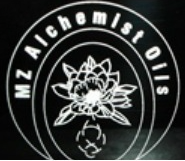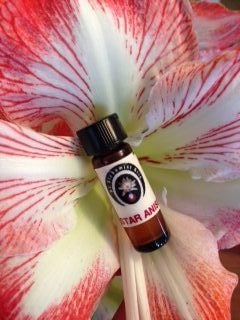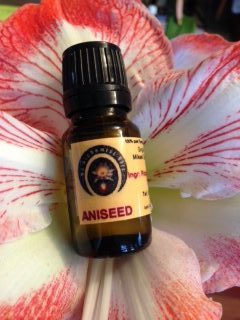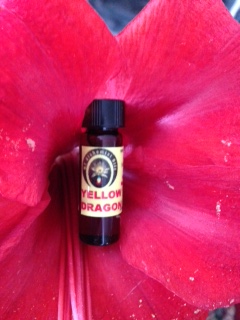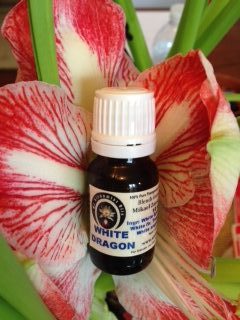Basil, Ociumum Basilicum – India
$21.00 – $43.00
Basil, Ociumum Basilicum – India, Basil, or Sweet Basil, is a common name for the culinary herb Ocimum basilicum (pronounced /ˈbæzɪl/ or, in the US, /ˈbeːzɪl/), of the family Lamiaceae (mints), sometimes known as Saint Joseph’s Wort in some English-speaking countries.
This organic essential oil of exotic basil from India is distilled from the flowers of the plant.
Medicinal Uses
Basil is used for their medicinal properties in Ayurveda, the traditional medicinal system of India and Siddha medicine, a traditional Tamil system of medicine. They are also used as drinks in Southeast Asia.
Basil and oregano contain large amounts of (E)-beta-caryophyllene (BCP), which might have a use in treating inflammatory bowel diseases and arthritis. BCP is the only product identified in nature that activates CB2 selectively; it interacts with one of two cannabinoid receptors (CB2), blocking chemical signals that lead to inflammation, without triggering cannabis‘s mood-altering effects
Balsam Fir, Abies Balsamea – Canada
$14.00 – $42.00
Balsam Fir, Abies Balsamea – Canada
This organic essential oil of Balsam fir from Canada is distilled from the needles of the tree.
Medicinal Uses
Both varieties of the species are very popular as Christmas trees, particularly in the northeastern United states. The resin is used to produce Canada balsam, and was traditionally used as a cold remedy and as a glue for glasses, optical instrument components, and for preparing permanent mounts of microscope specimens. The wood is milled for framing lumber, siding and pulped for paper manufacture. Balsam fir oil is an EPA approved nontoxic rodent repellent. The balsam fir is also used as an air freshener and as incense.
Argania, Cold Expressed – Morocco
$10.00 – $25.00
Argania, Cold expressed vegetable oil Morocco or Argan 0il
Argan oil is produced by several women’s co-operatives in the southwestern parts of Morocco. The most labour-intensive part of oil-extraction is removal of the soft pulp (used to feed animals) and the cracking by hand, between two stones, of the hard nut. The seeds are then removed and gently roasted. This roasting accounts for part of the oil’s distinctive, nutty flavour. [Wikipedia}
The traditional technique for oil extraction is to grind the roasted seeds to paste, with a little water, in a stone rotary quern. The paste is then squeezed by hand in order to extract the oil. The extracted paste is still oil-rich and is used as animal feed. Oil produced this way can be stored and used for 3–6 months, and will be produced as needed in a family, from a store of the kernels, which will keep for 20 years unopened. Dry-pressing is becoming increasingly important for oil produced for sale, as this method allows for faster extraction, and the oil produced can be used for 12–18 months after extraction.
The oil contains 80% unsaturated fatty acids, is rich in essential fatty acids and is more resistant to oxidation than olive oil. Argan oil is used for dipping bread, on couscous, salads and similar uses. A dip for bread known as amlou is made from argan oil, almonds and peanuts, sometimes sweetened by honey or sugar.
Medicinal Uses
The unroasted oil is traditionally used as a treatment for skin diseases, and has become favoured by European cosmetics manufacturers.
Arborvitae, Thuya Occidentalis – Canada
$19.00 – $42.00
Arborvitae, Thuya Occidentalis – Canada = Tree of Life huja (pron.: /ˈθjuːdʒə/ THEW-jə) is a genus of coniferous trees in the Cupressaceae (cypress family). There are five species in the genus, two native to North America and three native to eastern Asia.The genus is monophyletic and sister to Thujopsis.
They are commonly known as arborvitaes (from Latin for tree of life) or thujas; several species are widely known as cedar but because they are not true cedars (Cedrus) it has been recommended to call them redcedars or whitecedars. [Wikipedia]
Medicinal Uses
Oil of Thuja contains the terpene thujone which has been studied for its GABA receptor antagonistic, with potentially lethal properties.
The natives of Canada used the needles of Thuja occidentalis (Eastern White Cedar) to make a tea that has been shown to contain 50 mg of vitamin C per 100 grams; this helped prevent and treat scurvy.
In the 19th century Thuja was commonly used as an externally applied tincture or ointment for the treatment of warts, ringworm and thrush, and a local injection of the tincture was used for treating venereal warts.
Anise Star, Illicium Verum – China
$20.00 – $47.00
Anise Star Illicium verum
Anise star essential oil, derived from the seeds of the Illicium verum plant, is known for its distinct licorice-like aroma and various potential health benefits.
Add a few drops of anise star essential oil to a diffuser to fill the air with its sweet and spicy scent. This can promote relaxation and create a pleasant atmosphere.
Mix a few drops of anise star essential oil with a carrier oil and apply topically to the abdomen in a clockwise motion. This may help alleviate digestive issues and bloating.
Add a few drops of anise star essential oil to hot water and inhale the steam. This can help ease respiratory congestion and promote easier breathing.
Safety- keep away from children, heat and light.
Disclaimer: These statements have not been evaluated by the Food and Drug Administration. This product is not intended to diagnose, treat, cure, or prevent any disease or medical condition. The information provided is general and should not be taken as medical advice. Please consult your doctor, especially if being used during pregnancy, before using this product.
Aniseed, Pimpinella Anisum – Turkey
$19.00 – $46.00
Its sweet aroma is believed to have relaxing properties and may help reduce stress and anxiety.
Aniseed’s scent is thought to repel certain insects. Creating a spray or using sachets with crushed aniseed may help keep bugs away.
Some traditional medicine practices use aniseed oil topically to potentially reduce inflammation and soothe skin conditions. However, it’s important to dilute the oil before applying it to the skin.
Safety- keep away from children, heat and light.
Disclaimer: These statements have not been evaluated by the Food and Drug Administration. This product is not intended to diagnose, treat, cure, or prevent any disease or medical condition. The information provided is general and should not be taken as medical advice. Please consult your doctor, especially if being used during pregnancy, before using this product.
Amber, Tunisia
$11.00 – $32.00
Amber, Tunisia. Oil of Amber is a transparent, yellow oil, procured from succinic acid (spirit of amber) by increasing the heating temperature. It was produced by repeated distillation. It is very fluid and penetrative and was once used as an antihysteric and emmenagogue. [wikipedia]
Historic medicinal uses
Amber has long been used in folk medicine for its purported healing properties.[42] Amber and extracts were used from the time of Hippocrates in ancient Greece for a wide variety of treatments through the Middle Ages and up until the early twentieth century.[citation needed]
Scent of amber and amber perfumery
In ancient China it was customary to burn amber during large festivities. If amber is heated under the right conditions, oil of amber is produced, and in past times this was combined carefully with nitric acid to create “artificial musk” – a resin with a peculiar musky odor.[43] Although when burned, amber does give off a characteristic “pinewood” fragrance, modern products, such as perfume, do not normally use actual amber. This is due to the fact that fossilized amber produces very little scent. In perfumery, scents referred to as “amber” are often created and patented[44][45] to emulate the opulent golden warmth of the fossil.[46] The modern name for amber is thought to come from the Arabic word, ambar, meaning ambergris.[13] Ambergris is the waxy aromatic substance created in the intestines of sperm whales and was used in making perfumes both in ancient times as well as modern. The scent of amber was originally derived from emulating the scent of ambergris and/or labdanum but due to the endangered status of the sperm whale the scent of amber is now largely derived from labdanum.[47] The term “amber” is loosely used to describe a scent that is warm, musky, rich and honey-like, and also somewhat oriental and earthy. It can be synthetically created or derived from natural resins. When derived from natural resins it is most often created out of labdanum. Benzoin is usually part of the recipe. Vanilla and cloves are sometimes used to enhance the aroma.
“Amber” perfumes may be created using combinations of labdanum, benzoin resin, copal (itself a type of tree resin used in incense manufacture), vanilla, Dammara resin and/or synthetic materials.[43]
Yellow dragon
$25.00 – $78.00
Tangerine, Lemon, Laurel, Goldenrod, Neroli, Frankincense, Marigold
Laurel helps raise consciousness and liberates us from old trauma.
Disclaimer: These statements have not been evaluated by the Food and Drug Administration. This product is not intended to diagnose, treat, cure, or prevent any disease or medical condition. The information provided is general and should not be taken as medical advice. Please consult your doctor, especially if being used during pregnancy, before using this product.
White Dragon
$23.00 – $72.00
White Spruce, Rosemary, White fir, C Tsuga, Eucalyptus, White angelica
The White Dragon represents all the other 11 colors combined, thus she is the 12th Dragon and sits at the 12 position in the Faerie ring. She is the most Experienced and has Mastered all of the other levels of the Dragon Realm. She is humble, and doesn’t think herself any higher than the others, yet she has all the Experience and Mastery of the other Dragons combined. She is Motherly in Nature. Some say she is Mother Nature and she creates Magick with the other Dragons as well as the Faeries, and the Elementals, for the good of ONE.
Apply 2 drops on your crown chakra
Testimonials: “The White Dragon reminds me of the forest. It’s ONEderful!” DL
“My neck realigned itself immediately.” JR
Shop Grid- 4 Columnsecomguru2021-03-01T16:55:57+00:00
